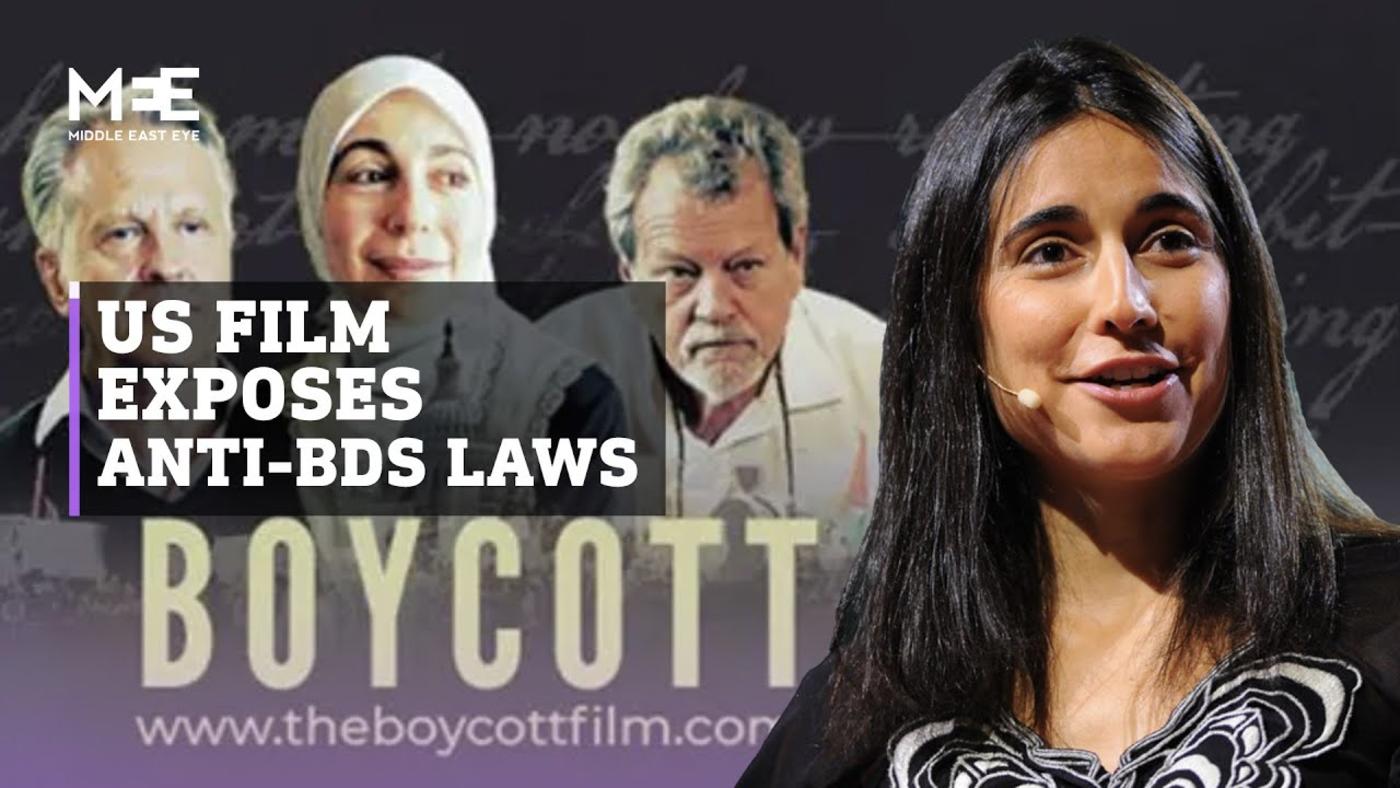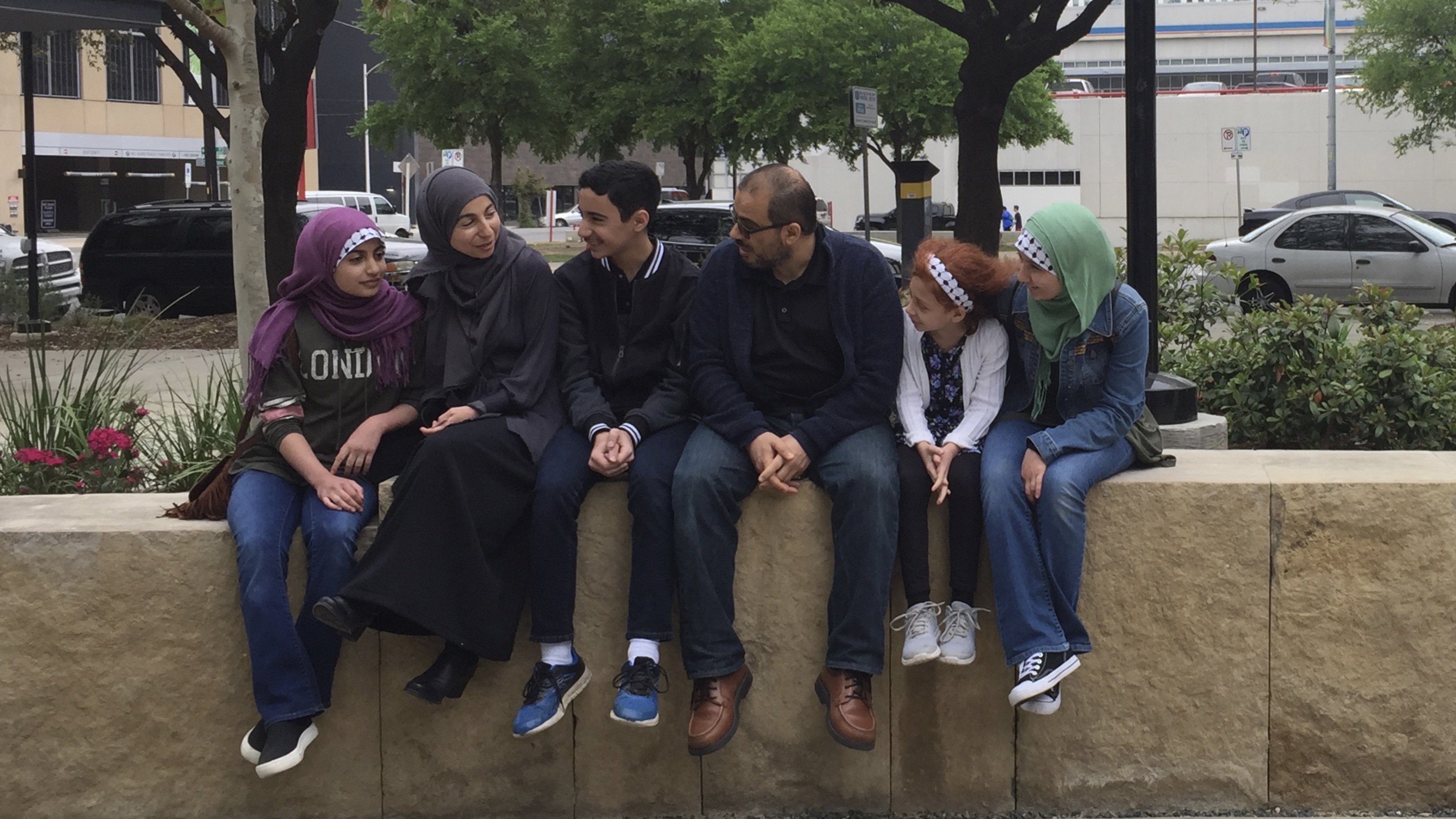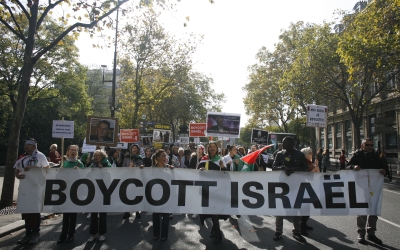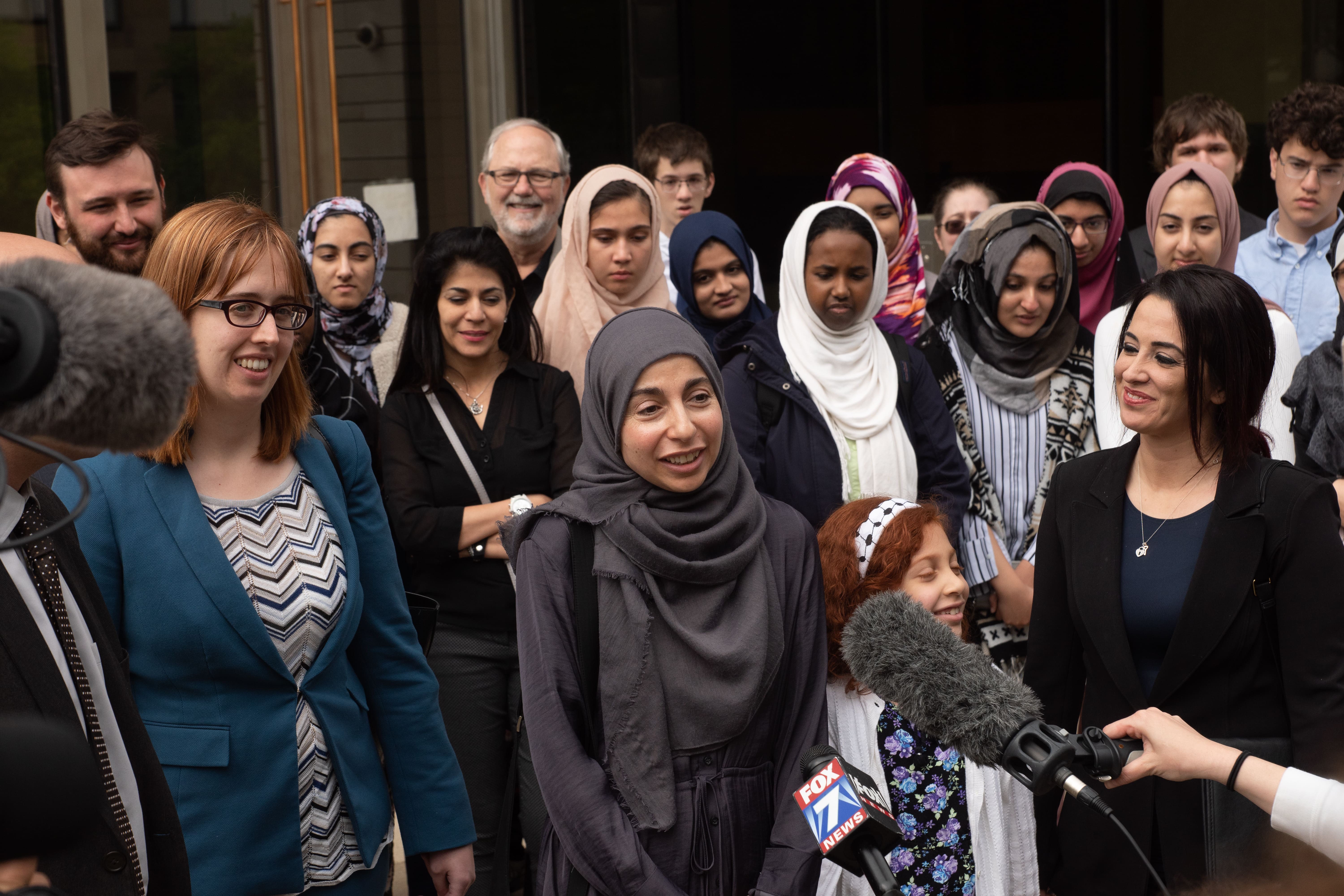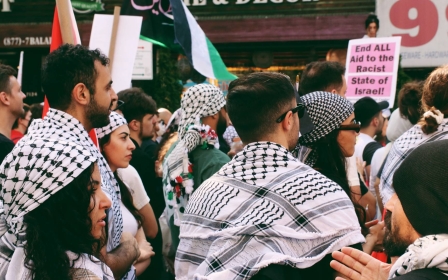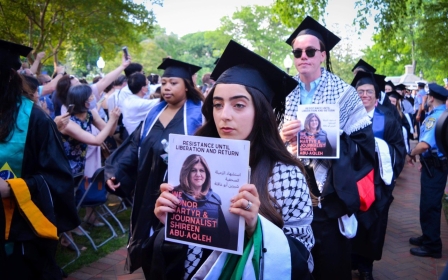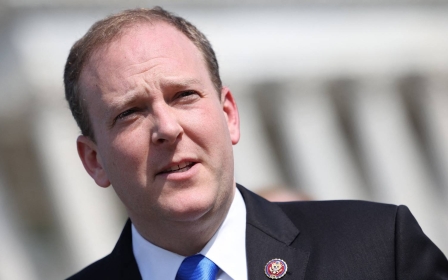Boycott: How anti-BDS legislation is impacting free speech in America
Alan Leveritt, who has spent the last four decades leading a newspaper focused on the local issues happening in the US state of Arkansas, did not know much about the plight of Palestinians, or the global Palestinian-led Boycott, Divestment, and Sanctions Movement.
But when when his newspaper was served a new contract with the state, in which he had to pledge to not boycott Israel, Leveritt - who refers to himself now as a "recovering conservative" - went on a journey where he discovered how the US's uncritical support for Israel has begun to infringe on America's free speech rights, according to many advocates.
The journey of Leveritt is captured in Boycott, a documentary that chronicles the story of ordinary Americans who found themselves thrust at the centre of a legal battle fighting for their constitutional right to freedom of speech.
Set in the US, the film, which was released last year, focuses on the growing number of legislations that have been introduced in the US, which many believe are stifling free speech, and criticism of Israel over its human rights record.
In recent years, the US has seen legislations prohibiting the Palestinian-led BDS movement. For many, the legislations play a larger role in the fight for Palestinian rights, as well as the debate on the parameters of free speech.
New MEE newsletter: Jerusalem Dispatch
Sign up to get the latest insights and analysis on Israel-Palestine, alongside Turkey Unpacked and other MEE newsletters
Seen as an effort to hush the voices which are critical of Israel's human rights abuses, the laws have sparked a wave of people using non-violent measures to defend their right to free speech.
Created by Just Vision and directed by Julia Bacha, the film discusses the issues of these legislations through the story of three "accidental plaintiffs" - children's speech pathologist Bahia Amawi, attorney Mikkel Jordahl, and Arkansas Times publisher Alan Leveritt - who all found themselves at the heart of a legal battle to protect their right to speak out.
"Our goal is really to highlight how efforts at the governmental level right now in America are mirroring efforts in Israel. And so the way that we do that is through the personal stories of Americans who are being directly impacted by these bills," Bacha said in an interview with MEE.
Telling personal stories
"As a storyteller, I believe that often when you're trying to break long held narratives, talking about personal stories is the best way to do that."
'You don't have to be Palestinian or Arab or Muslim to be impacted by this law. You just have to be an American really because it is regarding free speech'
- Bahia Amawi, pathologist
The three plaintiffs, who all come from different geographical and professional backgrounds, share one common element.
After an anti-BDS legislation was passed in their state, their employment contracts with the state government were amended with a new clause in which they had to pledge not to participate in a boycott of Israel. All three responded by suing their respective states.
Rather than spending the length of the film focusing on the courtroom drama, scenes instead show the three spending time with their family, at work, and involved in their local communities, as a way of emphasising that these laws can upend the lives of any American.
"You don't have to be Palestinian or Arab or Muslim to be impacted by this law. You just have to be an American really because it is regarding free speech, and it really affects everyone," Amawi told MEE.
For Amawi, the film also captured her family's personal journey of finding positive lessons through adversity.
In one scene, just outside the court in Texas, Amawi sits with her husband and children, reflecting on how despite all the hardship her family were going through amidst this lawsuit, the case presented a great learning experience for their children.
"One of the factors for taking on this lawsuit and suing the state of Texas, and then taking [part in] the film was my kids.
"For me, it is extremely crucial that I take a stand and they [the children] were present, so they can attend and see the actual process of the court and how the whole system works - things that they've learned about in school.
"Their mum being on the stand was extremely impactful for them."
Elevating awareness about Palestinians
The BDS movement is a non-violent movement encouraging people, countries, companies, and organisations to condemn Israel's violations of international law and occupation of Palestinian territories through various economic and political boycotts.
The movement has gained momentum in recent years, where a number of universities have introduced resolutions in support of it. That momentum has also been met with a huge backlash, leading to the adoption of anti-BDS laws in more than 30 US states.
Many of these laws were pushed through seemingly without much thought and simply on the lines that they are framed as pro-Israel.
Boycott also dives into the greater context and implications of the laws, speaking with Arkansas State Senator Bart Hester who said his support for the legislation derives from his Christian faith.
"Policymakers and legislators are readily willing to support deals that are introduced and framed as pro-Israel without actually looking very deeply into them," Bacha said.
"And I think that is the case of why this bill was able so successfully to pass with bipartisan support across the country."
The director said that in doing outreach for the documentary that unequivocal support "now is beginning to change".
Bacha said Just Vision has a multi-year plan for the film, which includes film festivals, individual screenings, and eventually getting the documentary on to college campuses.
Her goal is to get people informed about these laws, and the BDS movement, in the hopes that it will spread awareness and spark a conversation about the extent of free speech in America.
A recent study conducted by the Institute for Social Policy and Understanding found that only 24 percent of Americans polled have heard something about the boycott movement in the United States.
"As with all of our projects, for us it's very important to bring to the fore issues that are by and large hidden from the public. And this bill is certainly a very glaring example of that," said Bacha.
The director stated that in addition to raising awareness about how these laws affect US citizens, she ultimately hoped the film will lead to more understanding of the plight of Palestinians living under Israeli occupation.
Middle East Eye delivers independent and unrivalled coverage and analysis of the Middle East, North Africa and beyond. To learn more about republishing this content and the associated fees, please fill out this form. More about MEE can be found here.


